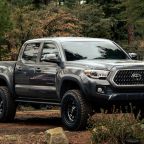
Smart Savings: Essential Tips for Buying a Car on a Budget
Buying a car is a significant investment for many, often second only to purchasing a home. While the idea of a brand-new vehicle, fresh off the showroom, is undeniable, it might not always be the most practical or financially sound choice, especially when operating on a budget. Thankfully, achieving the dream of car ownership without straining your finances is entirely feasible. This guide aims to provide prospective buyers with practical insights, ensuring you get the best value for your money. With meticulous research, informed decisions, and a keen eye for deals, you can navigate the car buying process smoothly, even with financial constraints. Read on to uncover the secrets of smart savings in the automotive world.
Know Your Budget Inside Out
Understanding your financial limitations is key to making a wise car purchase. Before plunging into the vast car market, take a step back and analyse your finances. Assess your monthly income, subtract your regular expenses, and determine what amount remains. This will give you a clear picture of what you can afford, both as an upfront payment and for monthly instalments if you're considering financing. Remember to factor in other associated costs such as insurance, maintenance, and fuel. Knowing your budget inside out not only ensures that you stay within your means but also gives you a solid negotiating position when dealing with sellers or dealerships.
Explore the Car Market
The car market is vast and varied, offering a multitude of options catering to different budgets and preferences. For those especially keen on making their money go further, the used car market holds particular promise. There's a wide array of used cars in Leeds available from reputable dealers. One such trusted platform is Car Synergy, where buyers can find a diverse range of quality used cars in Leeds, each subjected to rigorous checks to ensure they meet high standards. Exploring such platforms can help you find some fantastic deals, ensuring you get maximum value without compromising on the quality or reliability of your chosen vehicle.
Prioritise Your Needs Over Wants
It's easy to get swept away by all the advanced features, cutting-edge technology, and aesthetics you see when car shopping. However, when operating on a tight budget, it's crucial to distinguish between what you need and what you want. Perhaps a sunroof, leather seats, or the latest infotainment system might appeal to your senses, but are they essential for your day-to-day commute or primary usage? Prioritise fundamental aspects such as fuel efficiency, safety features, and maintenance costs. Determine the primary purpose of your car, be it commuting, family outings, or long drives, and focus on attributes that align with that purpose.
Research Financing Options
The method you choose to finance your car can significantly influence its final cost. If you don't have the full amount to pay upfront, various financing options can assist. Traditional bank loans, credit union loans, and dealership financing are common choices. However, each comes with its own set of terms, interest rates, and potential hidden charges. Thoroughly compare these options to find out which one aligns best with your budget and repayment capability. Securing a low-interest rate or flexible repayment terms can make a substantial difference in the long run, so invest time in research and even consider seeking expert advice to make an informed choice.
Learn How to Negotiate
The art of negotiation can significantly affect the final price you pay for your car. Most price tags, especially in the used car market, have some leeway. Familiarise yourself with the average prices for the models you're considering. This knowledge will provide a baseline, ensuring you don't overpay. When discussing price, be respectful but firm. Highlight any discrepancies or issues with the vehicle as justification for a lower price. Remember, salespeople expect some level of negotiation, so don't be shy about asking for a better deal.
Consider the Total Ownership Costs
While the upfront price of a car is a major concern, it's equally vital to consider the total cost of owning the vehicle. Ownership costs encompass several factors, including insurance, fuel efficiency, maintenance, road tax, and potential resale value. For instance, a car with a lower initial price might end up costing you more in the long run if it's a fuel guzzler or has high maintenance costs. Conversely, a slightly more expensive model with excellent fuel efficiency and low maintenance needs can be cheaper over its lifespan.
Time Your Purchase
Timing can play a pivotal role in obtaining a favourable deal. Dealerships often have monthly or quarterly sales targets, so shopping towards the end of these periods can offer better negotiation power, with dealers more inclined to give discounts to meet their quotas. Additionally, consider making your purchase during seasonal sales, such as end-of-year or new registration periods. Another strategic time is when new models are about to launch. Dealerships may be keen to clear out older stock, offering attractive deals on current models.
Get the Car Inspected
Whether you're looking at a nearly-new vehicle or one that's a few years old, it's crucial to know its exact condition. While dealers, especially reputable ones, will often provide details on a car's history and any refurbishments, it's always a wise move to get an independent assessment. Arrange for a mechanic or a car inspection service to evaluate the vehicle. They can identify potential problems, assess wear and tear, and provide an informed opinion on the car's worth. Investing a bit in this inspection can save you from significant costs down the line, ensuring the vehicle you're about to buy won't become a financial burden in repairs or performance issues.
Seek Recommendations and Reviews
In today's digital age, the collective knowledge of past buyers is at your fingertips. Before finalising your car choice, look into a range of online reviews and feedback available. Websites, forums, and social media platforms can provide invaluable insights into a vehicle's performance, reliability, and any common issues faced by owners. Apart from general car reviews, local groups or forums might shed light on dealerships, service centres, and even specific car batches that have been particularly well-received or problematic in your area. Moreover, personal recommendations from friends, family, or colleagues can be invaluable.
Be Wary of Up-Sales and Add-Ons
Once you've settled on a vehicle and are progressing with the purchase, dealers might present a slew of additional products, warranties, or services. These can range from extended warranties and paint protection to service packages and insurance products. While some of these add-ons can be beneficial, it's essential to assess each one critically. Ask yourself if the add-on is genuinely necessary, if it offers value for money, and if it's something you might find useful. Dealerships often mark up these services significantly, so do your research beforehand to determine if you're getting a fair deal.
Stay Open to Other Brands and Models
Brand loyalty or a particular preference for a specific model can sometimes limit the options you consider. However, if you're looking to get the best value for your money, it's prudent to keep an open mind. Other brands or models might offer similar, if not better, features at a more attractive price point. Additionally, lesser-known brands can sometimes provide excellent reliability and performance but come at a reduced cost due to their lower market profile. By expanding your search and considering alternatives, you not only broaden the potential deals you might find but also increase the chances of discovering a vehicle that offers excellent value and aligns perfectly with your needs.













